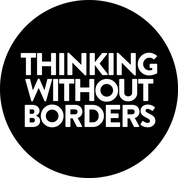)
Our experts are developing a new disruptive personal data model to protect your privacy.
Human rights law
The Cambridge Analytica scandal highlights how our digital footprints and the data we willingly provide online is used and sometimes misused. To protect people’s privacy, we’re developing a new disruptive personal data model that will impact on the way search engines, social media sites and internet companies gather, manage and use our personal data.
A leading thinker in the field, Dr Paul Bernal is creating this new model and exploring the current threats to our online autonomy and internet privacy. One of our law academics, Paul’s evolving research also looks at who should decide what are the ‘right’ stories to promote online and what are the ‘wrong’ stories to demote and delist.
It’s a very complex world, particularly in terms of global law. Are we looking at a dystopian Big Brother future? Or is surveillance vital to our national security? On the one hand, Paul is studying the human rights impact of government and corporate surveillance, particularly on the internet. On the other he is digging deeper into how and when it’s right to interfere with an algorithm that’s a key trade secret for businesses like Google.
One thing’s for sure. There’s currently an immense power imbalance between the big companies that have control over our data, the huge government agencies in the background and individuals who often feel they’ve no control over what’s going on.
Paul’s research became very real when someone successfully sued Google and the Court of Justice of the European Union set ‘the right to be forgotten’. People now have the right to ask for information about them to be removed from the internet. But companies don’t have to remove it, if it’s thought to be in the public interest.
As tech becomes increasingly part of our everyday lives with wearable tech, voice assistants, video surveillance and AI, the collection of highly personalised data is going to conflict more with our fundamental human rights. And we’re at the heart of helping to get the balance just right.

UEA Perspectives
"So many of the different problems we have at the moment such as fake news and Facebook are all connected by a disregard for privacy on the internet. Fake news works because it can be targeted at people due to their privacy being compromised." - Dr Paul Bernal, Senior Lecturer in Information Technology, Intellectual Property & Media Law
